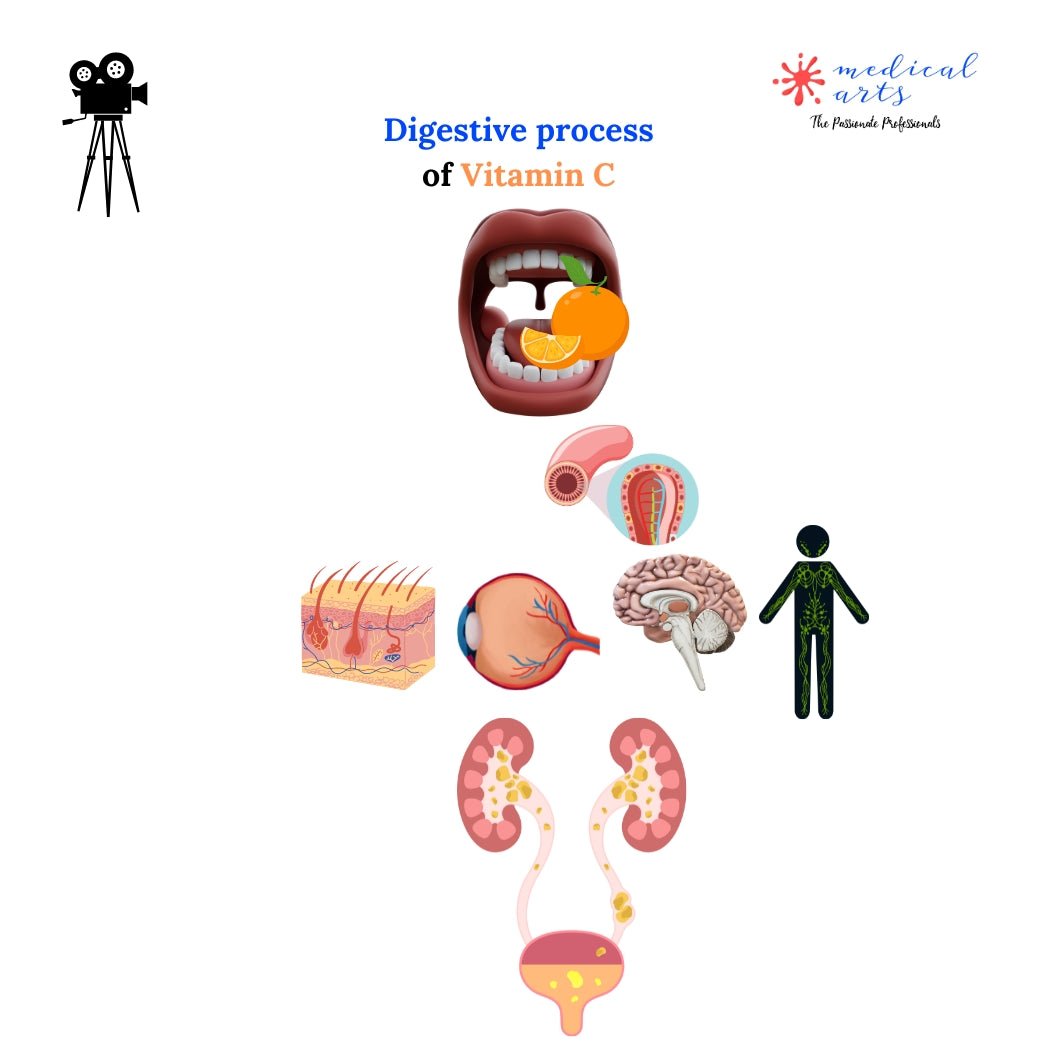Vitamin C: From Ingestion to Excretion and Its Main Actions
Vitamin C, also known as ascorbic acid, is a vital nutrient that plays numerous roles in the human body. It is water-soluble, meaning it can dissolve in water, and is found in various fruits and vegetables, notably citrus fruits, tomatoes, potatoes, and leafy vegetables. This article explores the journey of Vitamin C from the moment it enters the body, its metabolic pathways, to its excretion, and highlights its main actions.
Ingestion and Absorption
Vitamin C begins with ingestion, usually through consuming foods rich in this essential nutrient or via dietary supplements. Once ingested, Vitamin C is absorbed in the small intestine, primarily through a mechanism involving sodium-dependent vitamin C transporters (SVCTs), responsible for the active transport of Vitamin C across the intestinal epithelium into the bloodstream. This process ensures that Vitamin C is available to the body's cells and tissues.
Metabolism
Once absorbed, Vitamin C plays several pivotal roles in the body's metabolic processes. Its primary function is as a cofactor in enzymatic reactions, including those necessary for the biosynthesis of collagen, L-carnitine, and certain neurotransmitters. Collagen synthesis is crucial for maintaining skin, blood vessels, bones, and cartilage. Vitamin C's role in converting proline into hydroxyproline and lysine into hydroxylysine, both necessary for stabilizing the collagen molecule, underscores its importance in tissue repair and wound healing.
Vitamin C is also a potent antioxidant. It scavenges free radicals and reduces oxidative stress, which is linked to numerous diseases, including cancer and heart disease. By donating electrons, Vitamin C neutralizes free radicals, preventing them from causing cellular damage.
In addition, Vitamin C enhances the absorption of iron from plant-based foods by converting non-heme iron into a form that is more readily absorbed by the body, thereby playing a critical role in preventing iron deficiency anemia.
Excretion
After fulfilling its various functions, any excess Vitamin C is processed by the kidneys and excreted in the urine. Because Vitamin C is water-soluble, the body does not store it in large amounts; thus, regular intake is necessary to maintain adequate levels. The excretion of Vitamin C is a testament to the body's efficient regulation of water-soluble vitamins, ensuring that levels remain within a healthy range to prevent toxicity.
Main Actions
The main actions of Vitamin C can be summarized as follows:
- Collagen Synthesis: Essential for skin health, blood vessels, and connective tissues.
- Antioxidant Activity: Protects cells from oxidative damage by neutralizing free radicals.
- Enhancement of Iron Absorption: Improves the absorption of non-heme iron, contributing to the prevention of anemia.
- Immune System Support: Vitamin C supports various cellular functions of both the innate and adaptive immune systems.
In conclusion, Vitamin C is a crucial nutrient that supports numerous metabolic processes, from its absorption in the small intestine through its role as a cofactor in enzymatic reactions to its eventual excretion. Its antioxidant properties, role in collagen synthesis, and enhancement of iron absorption are among the key actions that underscore its importance to human health. Regular intake of Vitamin C-rich foods or supplements is essential for maintaining its beneficial effects on the body.

